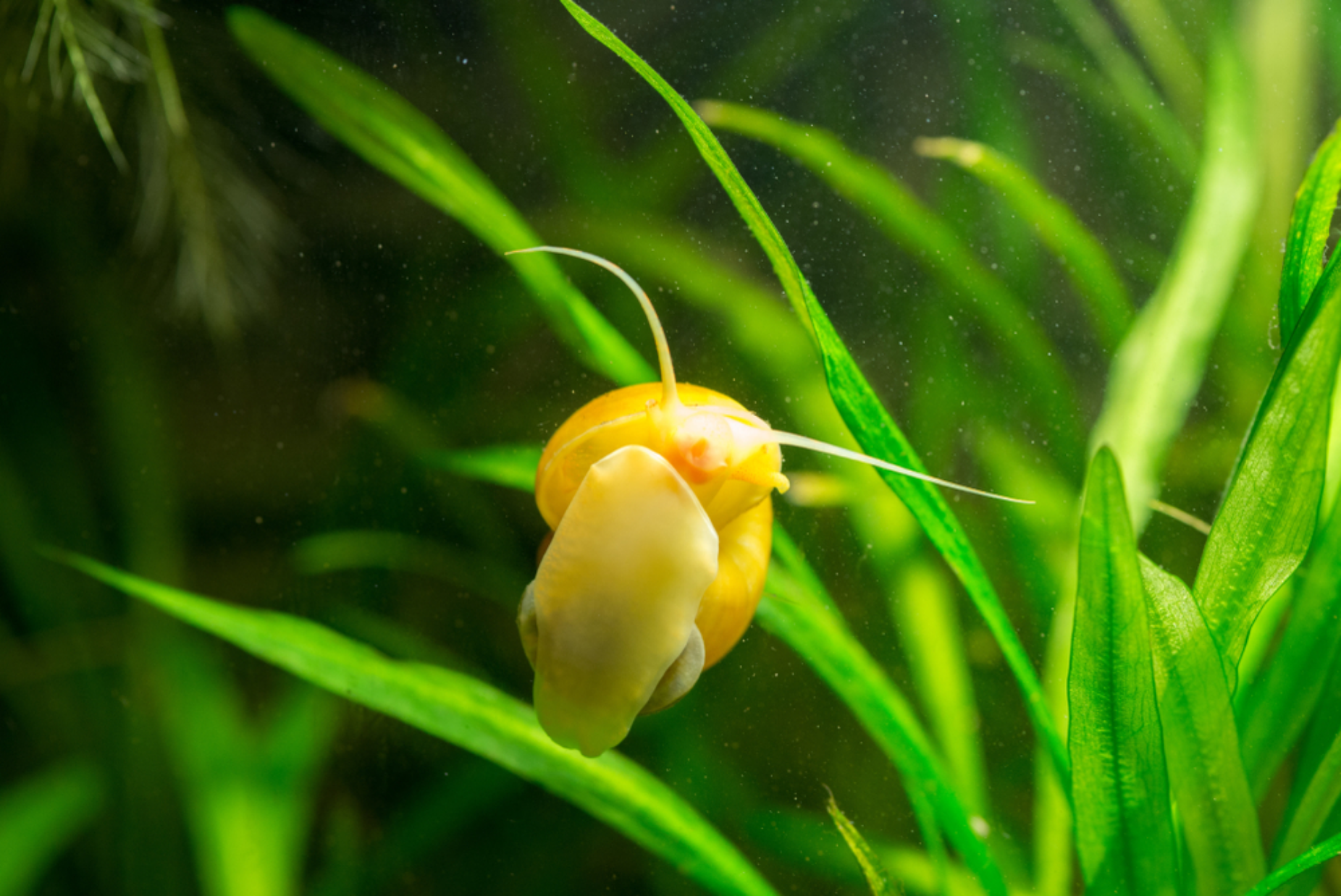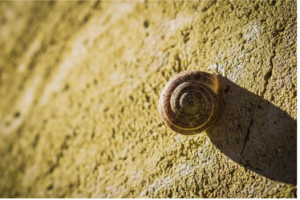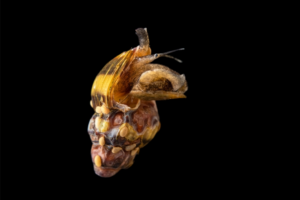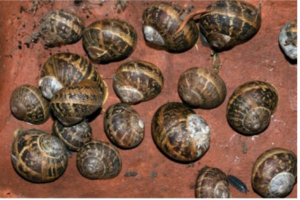Mystery snails exhibit various intriguing behaviors, including their breeding, feeding habits, and interaction with parasites. Parasites are often found in aquarium pets and pose a significant concern for aquarists, as they are linked to various diseases. The question then arises – can mystery snails get parasites?
Mystery snails get parasites by acting as intermediate hosts for parasites that transmit diseases to various organisms, including liver and lungworms, trematodes, schistosomes, leeches, and Ich. These parasites rarely harm mystery snails but can transmit diseases to humans and other aquarium pets.
The remainder of this article delves into the role of mystery snails as intermediate hosts for parasites in aquariums. I will examine the various parasites that infest mystery snails and discuss effective methods for preventing parasitic infestations.
How Many Mystery Snail Species Are There?
Before delving into the types of parasites that infest mystery snails, let’s briefly examine the diversity of these snails.
Recommended Reading: Unraveling the Mysteries of Mystery Snails: Everything You Need to Know
Mystery snails (Pomacea Spp) comprise a wide range of freshwater snails native to South America. As aquatic gastropod mollusks, they are classified as an invasive species, and their interstate shipment is subject to inspection.
Common subspecies include:
- Island apple snail
- Spike-topped apple snail
Both subspecies are edible due to their large size, with adults growing to the size of a golf ball. They are also recognized as effective parasitic hosts, which pose significant risks for humans and other tank pets.
While other varieties of mystery snails exist, such as the Chinese mystery snail and the golden apple snail, they are less common in aquariums. Thus, I will primarily focus on the two subspecies frequently kept in aquariums.
What Types of Parasites Do Mystery Snails Carry?
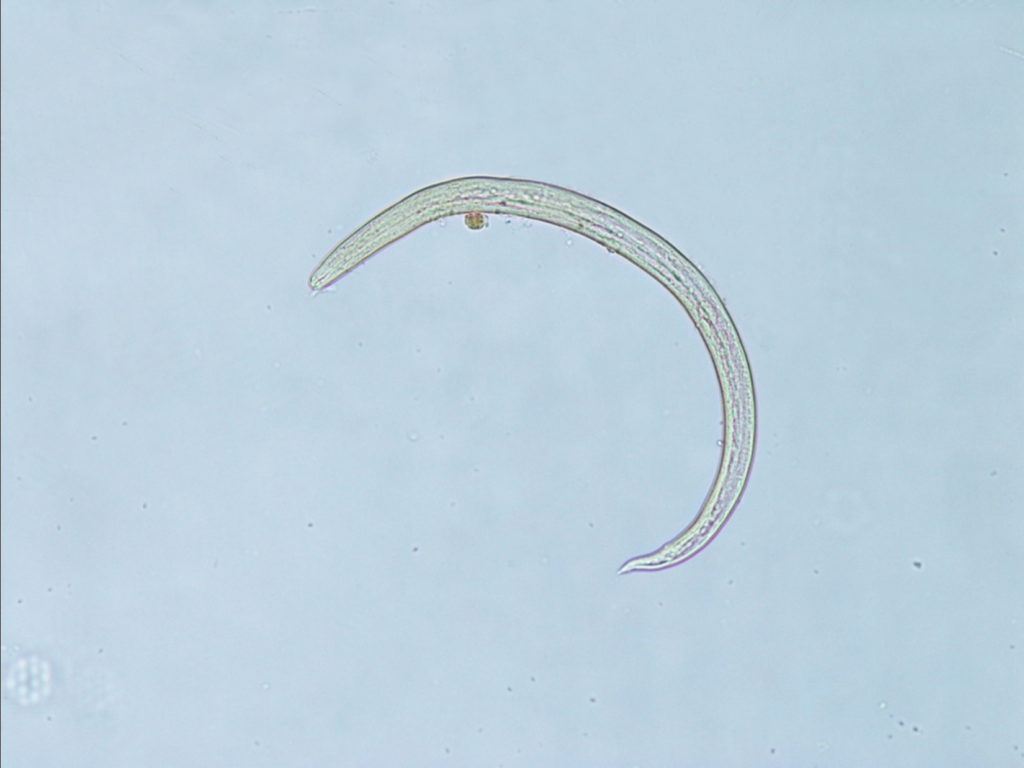
Mystery snails can harbor and transmit a variety of parasites. The most common among them include:
- Schistosomes: The most prevalent is Schistosoma, which causes Schistosomiasis, also known as Bilharzia, in humans.
- Flukes or Trematodes: These encompass species like Clonorchis, Opisthorchis, Fasciola, and Paragonimus, which infect various human internal organs such as the liver, gall bladder, intestines, and bile duct.
- Rat Lungworm: Scientifically known as Angiostrongylus cantonensis, this parasite causes meningitis and dermatitis in humans.
- Leeches: These creatures can carry bacteria and viruses, potentially transmitting diseases like hepatitis and even HIV AIDS in humans.
- Ich: Although Ich does not affect humans, it can cause white spot disease in fish. Transmission of Ich from human hands can devastate other tanks.
- Mites: These parasites burrow into the snails’ internal organs, causing severe pain and eventually death. You can read more about this in another article I wrote on mites.
Do Parasites Harm Mystery Snails?
While most parasites may not cause immediate death to your snails, they can negatively impact their health. When snails act as hosts for parasites, these parasites depend entirely on the snails for survival, living either in or on them.
Parasites can bore into the snails to extract blood, inhabit their bloodstream, or live within their internal organs. In each of these scenarios, the snails’ health and overall well-being are adversely affected.
In severe cases, if the number of parasites exceeds the snails’ capacity to support them, this could lead to fatal parasitic infestations.
Do Mystery Snails Contract Diseases From Parasites?
Whether mystery snails are affected by diseases carried by parasites depends on whether the parasite matures within the snail or transfers to another host during the sporocyst stage, which follows the larval stage.
A parasite will only induce disease in a snail if it matures within the snail’s body and begins to reproduce rapidly. As snails primarily host parasites during their immature asexual stages, they seldom suffer from parasitic infections.
However, if the larvae transfer to another organism—through inadequately cooked snail meals, direct contact with the snail, or contaminated water—the burden of disease doesn’t rest on the snails.
To grasp this concept, it’s crucial to understand the potential host formations for snails. A research article in the Infectious Diseases of Poverty journal states that snails play four significant roles in the life cycle of the parasites they host:
- They serve as the first intermediate host of parasite eggs.
- They act as an intermediate host infected by the first larval stage.
- They become the sole intermediate host infected by miracidia.
- They function as the first intermediate host penetrated by miracidia, with or without a second host.
Miracidia is an intermediary stage between the egg and larval stage, during which the eggs pass from the parasite to its snail host.
If the parasite doesn’t transfer to a second host, the snail will function as the definitive host, even for adult parasites. A definitive host is where the parasite reaches sexual maturity and begins the reproduction cycle anew by laying eggs.
The miracidia and larvae depend entirely on the snail for sustenance and survival. While they may cause discomfort, stunt growth, and induce pain in the snail, they typically don’t cause fatal harm.
In the scenario where the snail serves as the definitive host, it might contract diseases that affect humans and other mammals playing the same role. However, in most instances, parasites leave the snail post-larval stage, developing into sporocysts and cercariae capable of swimming in water. Thus, snails rarely suffer from parasitic diseases.
How to Prevent Parasite Transmission From Mystery Snails
- Contains one (1) API MELAFIX Freshwater Fish Bacterial Infection Remedy 8-Ounce Bottle
- Heals bacterial infections and repairs damaged fins, ulcers and open wounds
- Contains natural, botanical tea tree extract to quickly and rapidly help fish
- Helps treat newly-introduced fish to reduce risk of disease outbreak in freshwater aquariums
- Use daily for a week when treating infections and for 3 days as a preventive when adding new fish
- Always handle snails with gloves or wash your hands immediately after handling them without gloves.
- Avoid transferring mystery snails between tanks unnecessarily.
- Regularly sanitize your water using API Melafix, a potent antibacterial product for tanks that effectively eliminates bacteria, viruses, and parasites. It’s user-friendly and safe for the tank’s biological filter.
- Exercise caution during water changes. Clean your tank thoroughly and allow for proper cycling before reintroducing your aquatic pets.
- Quarantine new mystery snails in a separate tank for some time to prevent parasite transmission.
- Isolate any snails that appear sick or suspicious.
- Refrain from consuming raw snail dishes.
- Avoid contact with ponds and canals infested with snails.
Closing Remarks
Mystery snails are recognized as hosts for an array of parasites potentially harmful to humans and other mammals. At times, these parasites can also damage the snails themselves. Therefore, it’s crucial to exercise caution when handling mystery snails. Regular tank sanitization can significantly help control the spread of parasites.
Frequently Asked Questions
Are mystery snails illegal in Georgia?
Mystery snails, which belong to the genus Pomacea, are subject to licensing requirements in Georgia, according to Ga. Comp. R. & Regs. r. 391-4-8-.05 and O.C.G.A. Sec. 27-5-4. This means that while they aren’t outright illegal, their possession and transportation necessitate a specific license.
Do mystery snails carry disease?
Mystery snails can carry a variety of parasites that are known to transmit diseases to humans and other organisms. However, they typically serve as intermediate hosts, meaning that while they carry these parasites, they themselves do not usually suffer from the diseases associated with these parasites.
Why are mystery snails illegal?
Mystery snails, also known as apple snails, are often regulated or illegal in some areas because they are considered invasive species. Their rapid reproduction and consumption of large amounts of vegetation can lead to significant ecological disruption, damaging native ecosystems and biodiversity.
Are mystery snails poisonous?
Mystery snails, per se, are not poisonous and do not produce toxins harmful to humans or pets. However, they can serve as intermediate hosts for parasites that could potentially cause disease in humans and other animals.
Do mystery snails carry schistosomiasis?
Mystery snails can play a role in the transmission of schistosomiasis. As intermediate hosts, they can carry the Schistosoma parasite that causes the disease, which can be transmitted to humans and other animals through contact with contaminated freshwater.
Sources
- BMC: Snail-borne parasitic diseases: an update on global epidemiological distribution, transmission interruption and control methods
- CDC: Angiostrongyliasis, Neural
- CDC: Clonorchis
- CDC: Schistosomiasis
- CDC: Schistosomiasis
- Federal Register: Aquatic Snails; Permit Requirements for Importation and Interstate Movement
- NIH: Leech Bite
